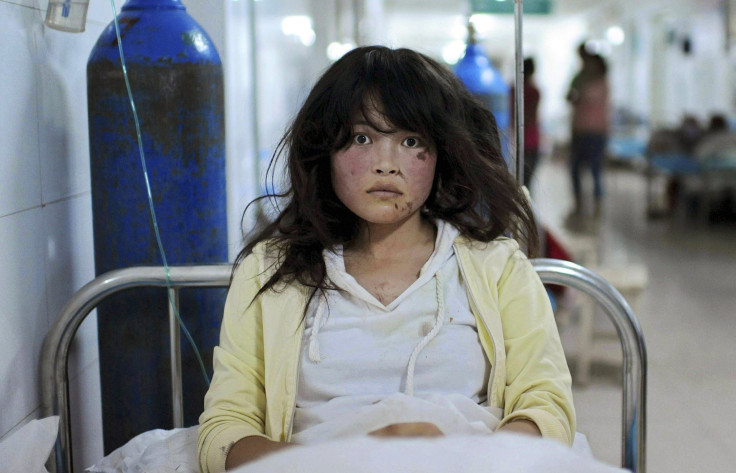China's Healthcare Woes: Doctor Killed By Unhappy Patient, Sparking Calls For Reform

China’s hospitals have increasingly become a danger zone, not just for ill patients, but also for the doctors treating them. Late last week, a man in eastern China unhappy with the results of his nose operation returned to the hospital in search of his doctor. Unable to find him, the man pulled out a knife and fatally stabbed the head of the department, Wang Yunjie, and injured two others.
That was the third attack on doctors or hospital faculty that week. Prior to that, a man in northeast China took his own life by jumping off the hospital building after he stabbed a doctor six times in an altercation that began as a disagreement over arm surgery complications. In China’s southern Guangdong province, two doctors were beaten up by the family members of a patient who had died in the hospital.
According to state-run Xinhua News Agency, thousands of people attended Wang Yunjie’s funeral this past Thursday, many of whom were the 47-year-old's hospital colleagues and former patients. An outpouring of condolences was also sent online, on China’s Twitter-like Weibo microblogging platform. “What a senseless tragedy,” one user simply said. “What is going on? Even the people trying to save lives are in danger, something has to change,” another user lamented.
The recent spate of attacks, however, is indicative of a larger issue with China’s already beleaguered health care system. According to a paper published last December in the Chinese Community Doctors medical journal by the China Hospital Management Society, hospital attacks have risen by an average of almost 23 percent annually. The sometimes violent reactions against hospital employees come from a variety of reasons, among them the high price of health care, long lines to get treatment and the lack of trust the public has in doctors and hospital administrators. Centralized funding for bigger hospitals in major cities has also contributed to a disjointed, inefficient health care system.
According to Deng Liqiang, the head of the legal department of the Chinese Medical Doctors Association, decreased funding for public hospitals from the government and an uneven distribution of that funding has driven up hospital costs, particularly in smaller cities. “After medical reforms, by 2009, they [the government] were providing 20 percent, the remaining 80 percent had to be covered with revenue generated by the hospitals,” Deng said to the Yanzhao Metroploitan News.
While hospital patients will likely continue to be unsatisfied with local healthcare, hospital employees are also calling for changes. According to Xinhua, medical staff in the city of Wenling, where Wang died, took to the streets and protested earlier this week, holding signs that read, “Protecting the safety of medical staff.”
In response, China’s central government’s health care department, the National Health and Family Planning Commission, announced new directives to increase safety in hospitals by increasing security personnel, specifically mandating that hospitals should keep a ratio of one security guard per 20 patients.
© Copyright IBTimes 2024. All rights reserved.






















